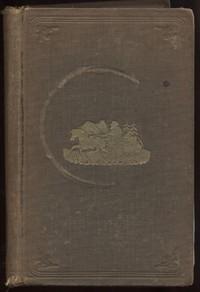Read this ebook for free! No credit card needed, absolutely nothing to pay.
Words: 65070 in 36 pages
This is an ebook sharing website. You can read the uploaded ebooks for free here. No credit cards needed, nothing to pay. If you want to own a digital copy of the ebook, or want to read offline with your favorite ebook-reader, then you can choose to buy and download the ebook.


: The American Claimant by Twain Mark - Humorous stories; United States Social life and customs 19th century Fiction; Mistaken identity Fiction
EXPLANATORY
The name was changed from Eschol to Beriah to accommodate an Eschol Sellers who rose up out of the vasty deeps of uncharted space and preferred his request--backed by threat of a libel suit--then went his way appeased, and came no more. In the play Beriah had to be dropped to satisfy another member of the race, and Mulberry was substituted in the hope that the objectors would be tired by that time and let it pass unchallenged. So far it has occupied the field in peace; therefore we chance it again, feeling reasonably safe, this time, under shelter of the statute of limitations.
MARK TWAIN.
Hartford, 1891.
THE WEATHER IN THIS BOOK.
No weather will be found in this book. This is an attempt to pull a book through without weather. It being the first attempt of the kind in fictitious literature, it may prove a failure, but it seemed worth the while of some dare-devil person to try it, and the author was in just the mood.
Many a reader who wanted to read a tale through was not able to do it because of delays on account of the weather. Nothing breaks up an author's progress like having to stop every few pages to fuss-up the weather. Thus it is plain that persistent intrusions of weather are bad for both reader and author.
It is a matchless morning in rural England. On a fair hill we see a majestic pile, the ivied walls and towers of Cholmondeley Castle, huge relic and witness of the baronial grandeurs of the Middle Ages. This is one of the seats of the Earl of Rossmore, K. G. G. C. B. K. C. M. G., etc., etc., etc., etc., etc., who possesses twenty-two thousand acres of English land, owns a parish in London with two thousand houses on its lease-roll, and struggles comfortably along on an income of two hundred thousand pounds a year. The father and founder of this proud old line was William the Conqueror his very self; the mother of it was not inventoried in history by name, she being merely a random episode and inconsequential, like the tanner's daughter of Falaise.
In a breakfast room of the castle on this breezy fine morning there are two persons and the cooling remains of a deserted meal. One of these persons is the old lord, tall, erect, square-shouldered, white-haired, stern-browed, a man who shows character in every feature, attitude, and movement, and carries his seventy years as easily as most men carry fifty. The other person is his only son and heir, a dreamy-eyed young fellow, who looks about twenty-six but is nearer thirty. Candor, kindliness, honesty, sincerity, simplicity, modesty--it is easy to see that these are cardinal traits of his character; and so when you have clothed him in the formidable components of his name, you somehow seem to be contemplating a lamb in armor: his name and style being the Honourable Kirkcudbright Llanover Marjoribanks Sellers Viscount-Berkeley, of Cholmondeley Castle, Warwickshire. He is standing by a great window, in an attitude suggestive of respectful attention to what his father is saying and equally respectful dissent from the positions and arguments offered. The father walks the floor as he talks, and his talk shows that his temper is away up toward summer heat.
"Soft-spirited as you are, Berkeley, I am quite aware that when you have once made up your mind to do a thing which your ideas of honor and justice require you to do, argument and reason are wasted upon you--yes, and ridicule; persuasion, supplication, and command as well. To my mind--"
"And has made mine a purgatory for ten years with his tiresome letters, his wordy reasonings, his acres of tedious evidence,--"
"Which you would never read, would never consent to read. Yet in common fairness he was entitled to a hearing. That hearing would either prove he was the rightful earl--in which case our course would be plain--or it would prove that he wasn't--in which case our course would be equally plain. I have read his evidences, my lord. I have conned them well, studied them patiently and thoroughly. The chain seems to be complete, no important link wanting. I believe he is the rightful earl."
Free books android app tbrJar TBR JAR Read Free books online gutenberg
More posts by @FreeBooks

: Roughing It by Twain Mark - West (U.S.) Description and travel; Hawaii Description and travel; Twain Mark 1835-1910 Travel West (U.S.); Authors American Homes and haunts West (U.S.); West (U.S.) Intellectual life 19th century Travel


: The Innocents Abroad by Twain Mark - Middle East Description and travel; Voyages and travels; Europe Description and travel





